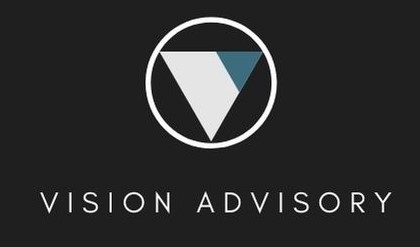Sarawak can stand to gain from adopting blockchain technology to level up the state’s digital economy ecosystem.
KUCHING:
Sarawak can stand to gain from adopting blockchain technology to level up the state’s digital economy ecosystem.
Vision Group managing director Chua Zhu Lian said due to the important features of blockchain technology which is extremely secured and tamper-proof that has proved to be hack-proof with present day technology, countless governments and major corporations have embarked on their blockchain transformation journey.
“The term blockchain and cryptocurrency generally goes hand-in-hand, it can be considered the engine powering the transactions of all the cryptocurrencies like bitcoin, and the total market cap of all the cryptocurrencies combined has exceeded US$1 trillion in 2021.
“Blockchain technology is basically a reliable way for record keeping that is near impossible to hack. It is a technology that enables all participating members of a group (digital network) to have the same copy of a ledger (a recorded list of actions performed by the network) which is updated at real time,” he said in an interview.
“All just to secure their data sets and to make their infrastructure future-proof. The most successful case studies would be Estonia, as it has begun using blockchain technology for its tax and business registration system.
“Estonia also issued a digital E-Smart Card to all its citizens, which stores all the personal information online with direct access to all the e-government services, which includes healthcare records as well as evoting systems.
“These allows for massive opportunity for the government to analyse big data on its citizens, and make the government more efficient.”
Chua recapped that Sweden and Georgia on another hand have adopted blockchain in its land registry systems, which allows records to be placed on a blockchain, providing transparency to sellers, buyers, banks, real estate agents and the land office, all in real-time which helps reduce fraud.
“Other countries like United States and Japan have also used blockchain technology for electronic voting for the election of some of its local states as a successful case study, making the process much more trusted and secured,” he added.
“Any attempts to alter the records will have a clear audit trail left behind which makes it near impossible to tamper with.”
Vision Group deputy managing director of digital technology Albert Chee highlighted the major benefits for the government on blockchain adoption is to strengthen trust with their citizens through data transparency, where information is decentralised and each citizen can view and verify information for themselves.
“If we take the Swedish land registry office as an example, housing information of land registry on a blockchain would make the data undisputable, lowering the chance for legal disputes to occur over land ownership,” he explained.
“The next benefit is related to data protection. Many governments and corporations are still adopting outdated data storage mechanism, with multiple cyber-attacks occurring even at large multi-national corporations where the public place their trust on.
“Nobody quite know how common these happenings are because unlike with a blockchain, hackers may even enter and leave without a leaving a trace!”
Apart from security, another key reasoning is that blockchain technology reduces the overall long-term cost for the government.
“With a data management warehouse backed by a solid blockchain infrastructure, these databases can remain secured without the need for enhanced fire walls and security infrastructure,” Chee continued.
“The reduced need for these security and maintenance measures can drastically lower operating costs.”
Should Sarawak consider to adopt blockchain technology, Chee said it was important to learn from the experiences of other countries regarding what works and what does not.
“Although the potential use cases for blockchain technology is limitless, there are various challenges to be recognised such as digital adoption rates at the citizens level.
“For example, a land registry database based on blockchain technology can be a good start for the Sarawak government to further demonstrate their strong will towards digital transformation.
“Upon successful implementation, this technology can potentially expand to replace all the government’s record keeping infrastructure, allowing their citizen’s identity and possessions to be digitised and easily accessible.
“Healthcare records, tax information, land registry, utility bills and government services can all be securely and efficiently provided online with a potential for tremendous cost savings.
“All of this and much more will be made possible with blockchain, potentially putting Sarawak as the leading role model of digital transformation in the world.”
The term blockchain and cryptocurrency generally goes hand-in-hand, it can be considered the engine powering the transactions of all the cryptocurrencies like bitcoin, and the total market cap of all the cryptocurrencies combined has exceeded US$1 trillion in 2021.
View Original Article
